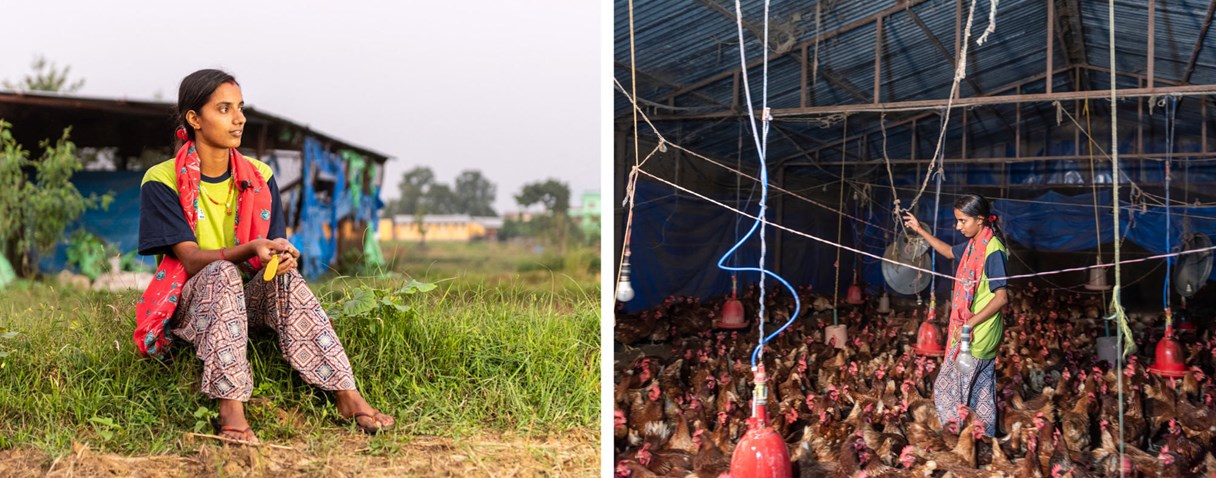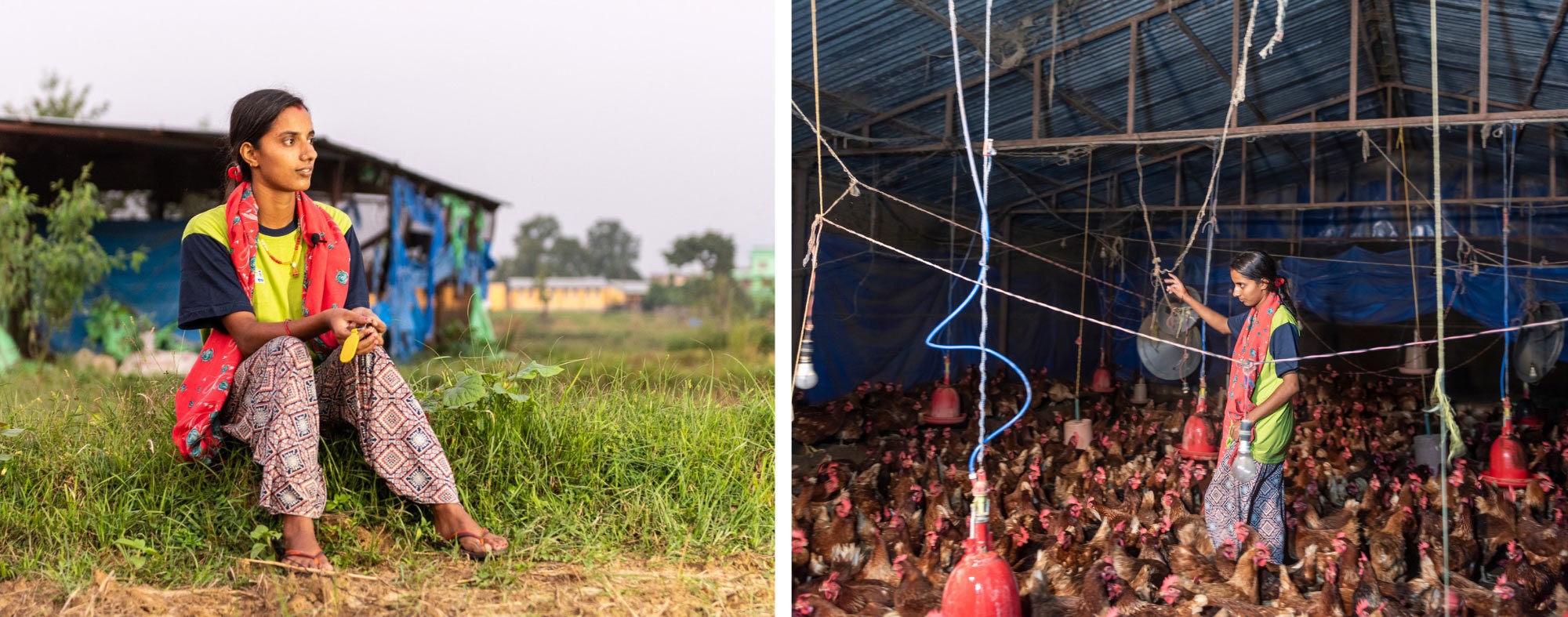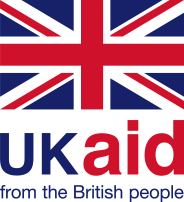UKaid सीप’s support has triggered increased investments from the private and public sector and enabled expansion of improved job-linked skilling practices. Between November 2019 till April 2021, सीप piloted a partnership with Shreenagar Agro Farm (SAF) to enable systemic changes in the agriculture sector—primarily in poultry, livestock, feed and maize—through an industry-led skilling approach to expanding capability of farmers and aspiring agri-entrepreneurs with focus in the Lumbini Province. As a mid-sized growing company with active vertical integration—from feed, poultry, frozen and processed meat products, restaurants, and online delivery of products—SAF, with सीप’s support, has adopted and integrated a skilling agenda in its core business operations.
Case Study
Innovations and Systemic Changes Catalyzed in the Agriculture Sector
UKaid सीप’s support has triggered increased investments from the private and public sector and enabled expansion of improved job-linked skilling practices. Between November 2019 till April 2021, सीप piloted a partnership with Shreenagar Agro Farm (SAF) to enable systemic changes in the agriculture sector—primarily in poultry, livestock, feed and maize—through an industry-led skilling approach to expanding capability of farmers and aspiring agri-entrepreneurs with focus in the Lumbini Province. As a mid-sized growing company with active vertical integration—from feed, poultry, frozen and processed meat products, restaurants, and online delivery of products—SAF, with सीप’s support, has adopted and integrated a skilling agenda in its core business operations.


 Kamala Sharma Panthi, from Saina Maina Municipality at Rupenndehi started layers chicken farming after getting skilling through Shreekisan Innovation Hub last year. She currently has 1,000 chicks and produces over 800 eggs a day.
Kamala Sharma Panthi, from Saina Maina Municipality at Rupenndehi started layers chicken farming after getting skilling through Shreekisan Innovation Hub last year. She currently has 1,000 chicks and produces over 800 eggs a day.
Cognizant of the need for pro-poor model in the agri space, SAF forged linkages, some formally and others informally, to leverage public funding and mobilize local farmers who’re already connected with local GoN and cooperatives, and yet without reliable or quality access to industry-relevant trainings, key inputs, and output markets. Similarly, SAF drew on its own capital as well as funds unlocked from other donors/NGOs. Use of such a diverse demand side financing model, is playing an important role in enhancing access to quality market-led services for those who cannot afford the upfront costs of trainings. In addition to hands-on trainings, farmers affiliated to SAF and its partners can access critical inputs such as day-old-chicks and feed; build market linkages with buy-back guarantees; and seek financing solutions via partner banks.
SAF’s end-to-end service model centered around skilling is promoting self-employment for agri-entrepreneurs and increasing productivity and incomes for farmers, while also strengthening the input supply chain mechanism and market system for target agri-products. As one of the largest industry players in the Lumbini Province, with interests aligned with the development sector, SAF’s ability to provide contract farming arrangement (covering both inputs and outputs) is critical to the success of farmers. This is a key differentiator compared to trainings delivered by other I/NGOs and CTEVT-aligned training institutions.
Post-COVID, SAF pivoted rapidly to digital adoption—testing online delivery of trainings. Building on this experience, it is now in the process of creating the first industry-led online learning management system to house its curricula (developed through सीप’s support) and administer training for literate job seekers/aspiring entrepreneurs. Moreover, given the realized potential of digital technology, last year, SAF initiated design of a mobile application ‘Shree Kisan App’ (available on google play) to integrate smallholder farmers, women, and MSMEs into the digital economy by strengthening their access to key market information, inputs, skilling/reskilling activities, and broader markets.
With the training infrastructure, networks, and resources created, SAF is well-positioned to expand delivery of practical hands-on trainings across multiple job roles/sectors such as poultry, aquaculture, livestock, agri-entrepreneurship, dairy, cattle/dairy, and feed—targeting farmers, aspiring MSMEs, job seekers, as well as other industries. This partnership has the potential to tangibly increase interest in industry-led trainings, and in building livelihoods in a sector that is critical not just for rural-based job creation in Nepal, but also for food security and nutrition.


